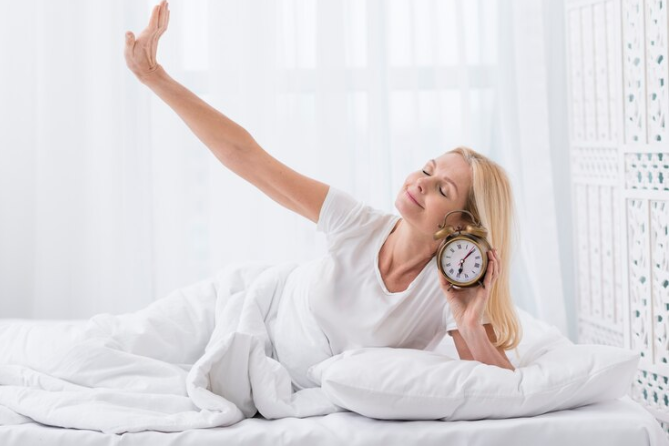Does a heavy meal, a glass of wine, a boring meeting, or a long TV show ever make you drowsy? Do you need an alarm to wake up in the morning? Do you fall immediately to sleep when your head hits the pillow? Answer yes to any of these and there’s a good chance you’re sleep deprived.
Over 70% of the population falls into this category. If all of this sounds familiar, welcome to the club. With a growing list of negative health impacts associated with prolonged bad sleep including high blood pressure, depression and Alzheimers, there are good reasons to make changes to attain better sleep.
You may wonder, is it worth making changes? Ask Sara Hughes. She was a young ice skater who had Olympic level talent but had been unable to break through. Her first practice began at 4 am with additional practice times throughout the day.
While visiting with Dr Maas, a leading sleep doctor, he suggested she wasn’t getting enough sleep. He further suggested that she abandon her morning workouts. Laughing at the thought, she explained this wasn’t an option as she’d be vilified by her coaches and fellow skaters.
He convinced her to try. She not only began to show improvement, feel stronger, and gain greater skills, but Sara Hughes went on to win the gold medal in the 2002 Winter Olympics! Since taking home the gold, she’s made a point of stating that getting proper sleep was a major contributor to her success. Good sleep is life changing!
What about you? Where do you begin to make changes?
First, you need to understand your internal clock, or circadian rhythm. Every one of us has an internal clock that directs your body’s functions. For most of us, this includes 7-9 hours of sleep.
Just as the sun rises and falls, in the same way animals sleep at night and are awake during the day, we each have a built-in clock that regulates our wake and sleep cycles. This circadian rhythm actually changes your body temperature to accommodate sleep by falling at night and rising in the morning.
To sleep better it is essential that you are in tune with your circadian rhythm. You do this by going to sleep and getting up at the same time each day. That time depends on whether you’re an early riser or a night owl. Most people know which one they are.
Once you have an understanding of your circadian rhythm, it’s a matter of consistency. This cannot be overstated. You need to go to sleep and wake up at the same time each day.
Here’s the part nobody tells you:
Although a day is 24 hours, people’s circadian rhythm is approximately 24 hours and 15 minutes!
Exposure to morning sunlight serves to reset your circadian rhythm in tune with the day. Stepping outside in sunlight for 15-20 minutes is one of the best things you can do for yourself. The reason for this is not only fascinating, it’s something few know about.
For those of you that work inside and rarely if ever see the sunlight, your circadian rhythm is most likely out of sync. It’s vital to put “more sunlight” on your schedule.
You may not win a gold medal, but the quality of your life and health will improve.
Got a question or topic you want discussed? Please send me a message.
Scott @discoversleep.net
www.Discoversleep.net











